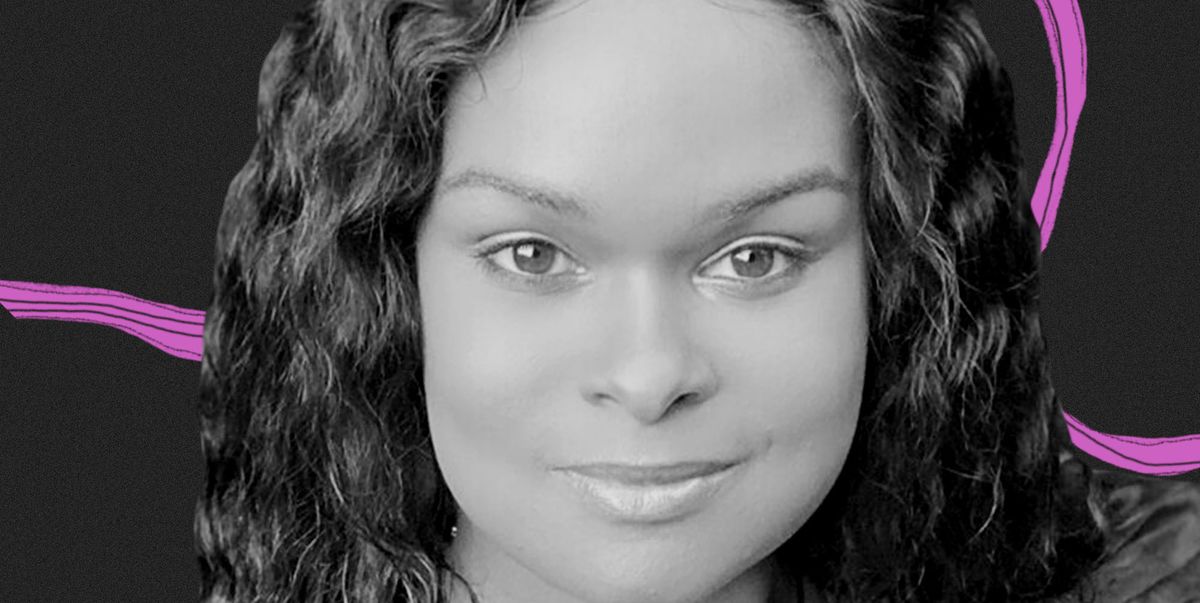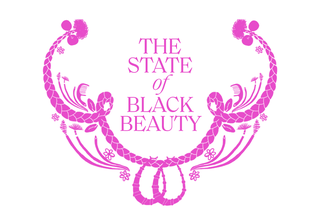For the State of Black Beauty, ELLE.com chatted with six Black icons to hear how they define Black beauty and how they see themselves in the space—in their own words.
I grew up in the South, and there’s a very particular way that Black women in the South get ready for church. It’s a ritual, and there’s an emphasis on aesthetics and presenting yourself the way you would want whoever your God is to see you. Beauty was all around me, and I have such vivid memories. I would help my grandma dye her hair blonde: She would do the touch-ups and I would help because she couldn’t get the back of her head. I remember always being fascinated by rouge and perfume, but of course, I didn’t have access to those things as someone who was being raised as a boy.
A lot of trans femmes’ stories are about wanting to access beauty but being locked out of it. I remember when I was a little bit older—I would say maybe 11 or 12—I told my Dad that I didn’t want to get a haircut anymore. I wanted to grow my hair out. He had an afro in the ’70s and this was my fix to get my Mom’s hair. That was the only way I could appeal to him and it would be acceptable, because little boys are not supposed to have long hair. I had to logic my way into assessing my aesthetic on my own terms, and he allowed me to. It also was a way of keeping me from being in the barbershop, which is often a very toxic, masculine environment that always felt uncomfortable to me.
When I got to high school I had a little more agency in my body. What I wore, how I presented myself as queer—I also came out as queer in high school. I started to secretly wear concealer and foundation, and I would wear just enough to make sure I had clear-looking skin. You couldn’t see all my acne scars, but it was still something I felt like I had to hide, even in high school. I really had to be on that no-makeup look before it was a trend because I didn’t want to be teased and ostracized over it, didn’t want to be chastised by my dad about it.
It wasn’t until I got to college that I really gained even more agency and was able to access beauty in a way that felt more gender-affirming. I always gravitated towards the people who would do drag makeup, because they understood how to construct the face in a different way, like if you wanted to womanize the face or give the appearance of different features. That’s where a lot of that came from. When I think about the contouring and the highlighting that everyone wears now, especially cis women, a lot of that comes from drag culture. A lot of that comes from trans women’s beauty, and of course, we don’t get the kudos for innovating that as a community in the ways we should. We often get ostracized for perpetuating an ideal standard of beauty when that’s unfair. For a lot of trans women, beauty is armor. It’s necessary for survival.
As a trans woman and also as a Black woman, there’s pressure to present a certain image, and I hate that. I definitely feel the pressure to present myself in a way that is attractive. There’s the balance of trying to embody what is beautiful to us, but also trying to signal the attractive beauty we are capable of embodying. It’s a balance between those two things: There is pressure to present an image of, I’m just as beautiful as a cis woman, or that I can inhabit this space of beauty as well.
Just in wanting to prove to the world that we are here too, our beauty is just as important. But I really admire a lot of my trans sisters and siblings and brothers who don’t give a fuck about any of those standards—fucking with the formula and playing with aesthetics that feel more liberating. I don’t think my type of beauty is necessarily as radical or revolutionary as many of my trans siblings. It’s liberating for me, which is important, but what other trans folks are embodying in beauty is more liberating collectively. I don’t mind that. I don’t need to be the most radical person out here. I love other folks who can do so much and often do more with less.
When I think about the Brooklyn Liberation March and the March for Black Trans lives, not exactly beauty, per se, but aesthetics were very important. We had a motif that was put out by an organizer named West Dakota for us to all wear white as an ode to a silent parade by a Black organizer with the NAACP in the early 1900s. There was definitely an intentional aesthetic there, and incorporating aesthetics from the ’60s and ’70s with the big hair. There’s just something about having your natural hair out, having it big and in a fro, that almost automatically nods to Black Power and the Black Power Movement and eschewing eurocentric standards of beauty.
This content is imported from Instagram. You may be able to find the same content in another format, or you may be able to find more information, at their web site.
For a trans person or queer person, how we dress, how we move through the world every day is already an act of resistance. Lots of people don’t talk about how, decades ago, we wouldn’t have been able to wear a lot of what we wear today without being at risk of being criminalized. The advent of women having more of a range of what they wear—that’s a testament to the queer and trans resistance of yesteryear. It’s so interesting to me that cis, straight people don’t know or acknowledge those things, and don’t understand how our liberation is tied up in each other. Women would not be able to wear pants if it weren’t for queer and trans people setting those trends throughout time, and men wouldn’t be able to have what little flexibility they have now without the queer and trans pioneers. There are literally activists today who are in their 70s and 80s who were criminalized because of how they dressed and expressed themselves in the world. A lot of beauty and aesthetics we have today would not be possible without queer and trans people paving the way. And we’re continuing to do that.
I think about the ways that cis women, particularly white or non-Black cis women, have profited off the beauty aesthetics and brilliance of Black women and Black queer folks, and the ways that even white queer folks or non-Black queer folks will benefit from that as well. I think it’s very important for folks to employ people of color, but especially queer and trans people of color. That is just not happening. There are Black people and queer and trans people in spaces who are looked over all the time for promotions or for leadership positions.
I’ve been on too many sets where I have had to worry about whether I was going to get a Black hairstylist or Black makeup artist, and honestly, I’m at the point now where I don’t want anyone who’s not Black touching my hair, period, and if I can swing it, I don’t want anyone who’s not Black doing my makeup. I think many folks are afraid to make those stipulations, but I’m not afraid anymore. As much as we can, all Black everything is what we need. That’s a way of thinking about reparations. It’s about thinking about how we can build up Black folks. I also think folks need to be pouring more resources into and supporting Black women and queer-owned businesses. Almost every day it’s another basic white or non-Black person coming out with a new makeup line or beauty kit. We don’t want that. Why don’t y’all support the Black creatives that, more than likely, these white and non-Black folks built their brands on the backs of?
Wherever you have the power, you should be getting creative in how you’re going to organize to support Black and queer and trans lives. It’s more than just following whatever one Black person is doing. It doesn’t make sense to me that folks don’t understand the need to get more information and actually synthesize that information and figure out how to apply that to their work. That is a simple way of looking at allyship: Like anything else, if you can acknowledge that you need to be educated, then understand that you need to be educating on the experiences of people more marginalized than you to understand how best to be of service to them.
When you can connect with family, friends, and people that affirm your existence and your life, it can be a form of self-care. And maybe the biggest form of self-care is extending grace to yourself. You’re not ever going to be perfect, you’re never going to get everything right, you’re never going to say everything perfectly, but a lot of times, it’s about reminding ourselves of the power and the bravery of just attempting.
Black beauty to me is about power, resilience, and envisioning the future. I think that every time we take care of ourselves, we are taking care of the ancestors who never had access to that. It’s about signaling to future generations that they deserve to be cared for as well.
This interview has been edited and condensed for clarity and length.
This content is created and maintained by a third party, and imported onto this page to help users provide their email addresses. You may be able to find more information about this and similar content at piano.io

